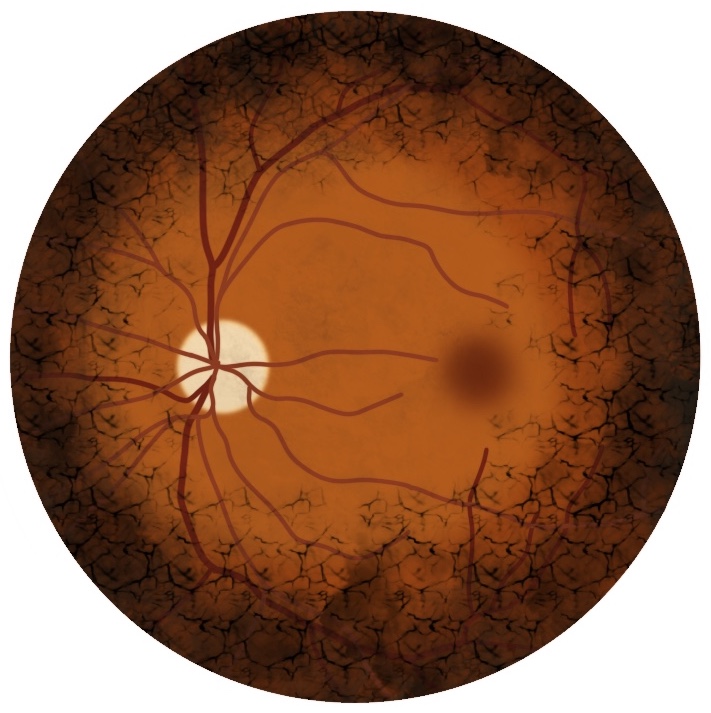Retinitis pigmentosa is a genetic condition causing degeneration of the photoreceptors in the retina, particularly the rods. There are many different genetic causes. Some causes involve isolated retinitis pigmentosa, while others result in systemic diseases associated with the condition. They vary in age at presentation and prognosis.
Presentation
The presentation can vary depending on the underlying cause. In most cases, the symptoms start in childhood.
In most causes, the rods degenerate more than the cones. Rods are responsible for night vision and peripheral vision. Therefore, there is:
- Night blindness (often the first symptom)
- Peripheral vision loss (before the central vision is affected)
Fundoscopy shows pigmentation described as “bone-spicule” pigmentation. Spicule describes the sharp, pointed appearance. Bone-spicule refers to the similarity to the networking appearance of the bone matrix. The pigmentation is most concentrated around the mid-peripheral area of the retina.
There can be a narrowing of the arterioles and a waxy or pale appearance to the optic disc.

TOM TIP: Retinitis pigmentosa gives a very characteristic finding on fundoscopy, making it popular in OSCEs. You will impress your examiners by simply spotting the diagnosis. They are unlikely to expect you to know many other details besides that it is a genetic condition, affects the rods and causes night blindness.
Associated Systemic Diseases
Several genetic, systemic diseases involve retinitis pigmentosa. Some examples are:
- Usher syndrome also causes hearing loss
- Bassen-Kornzweig syndrome also causes progressive neurological impairments
- Refsum disease also causes peripheral neuropathy, hearing and ichthyosis (scaly skin)
Management
General management involves:
- Referral to an ophthalmologist for assessment, diagnosis and follow-up
- Genetic counselling
- Vision aids
- Sunglasses to protect the retina from accelerated damage
- Driving limitations and informing the DVLA
There is little evidence or consensus supporting options to slow the disease process at present.
Last updated October 2023
